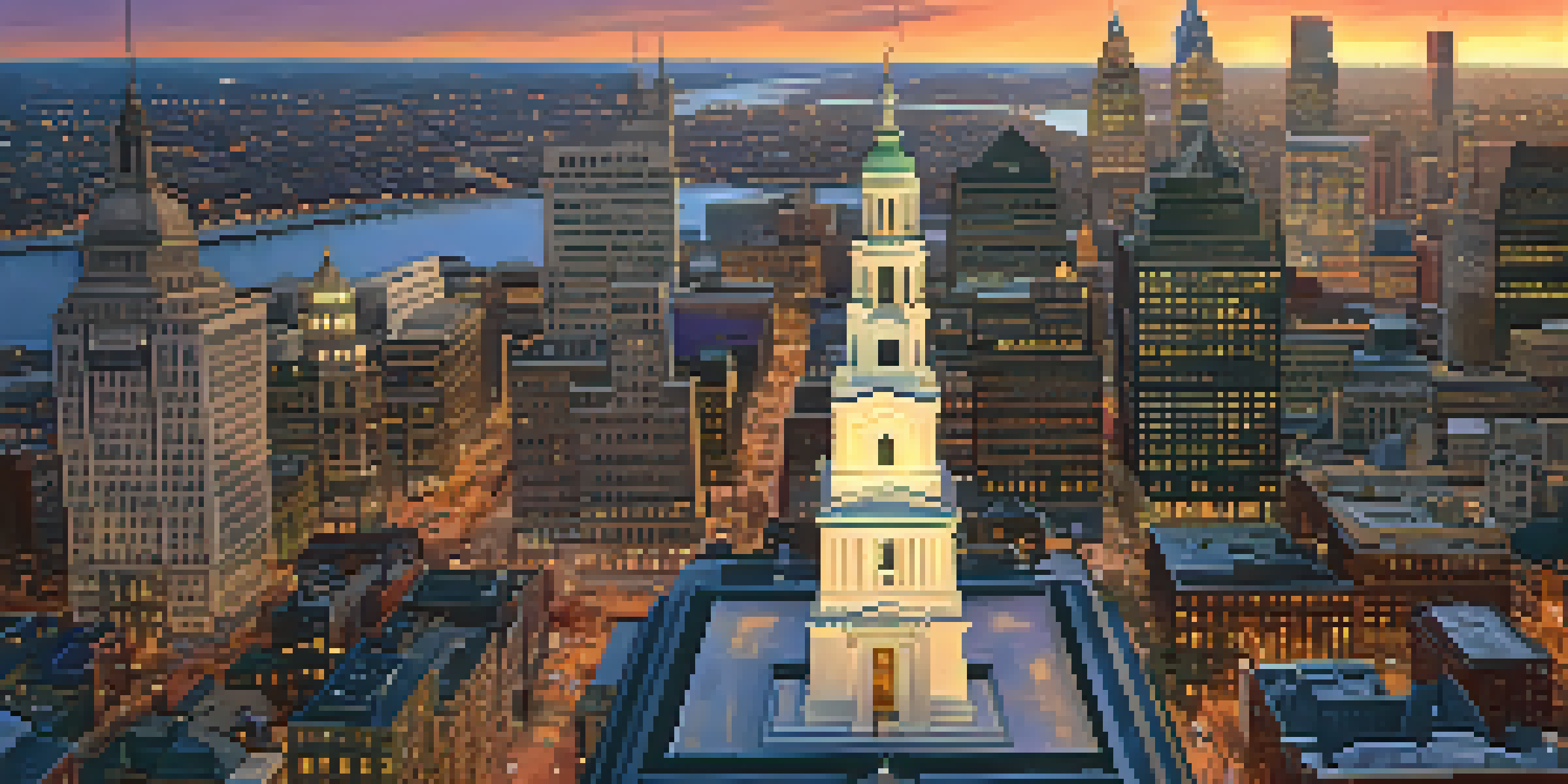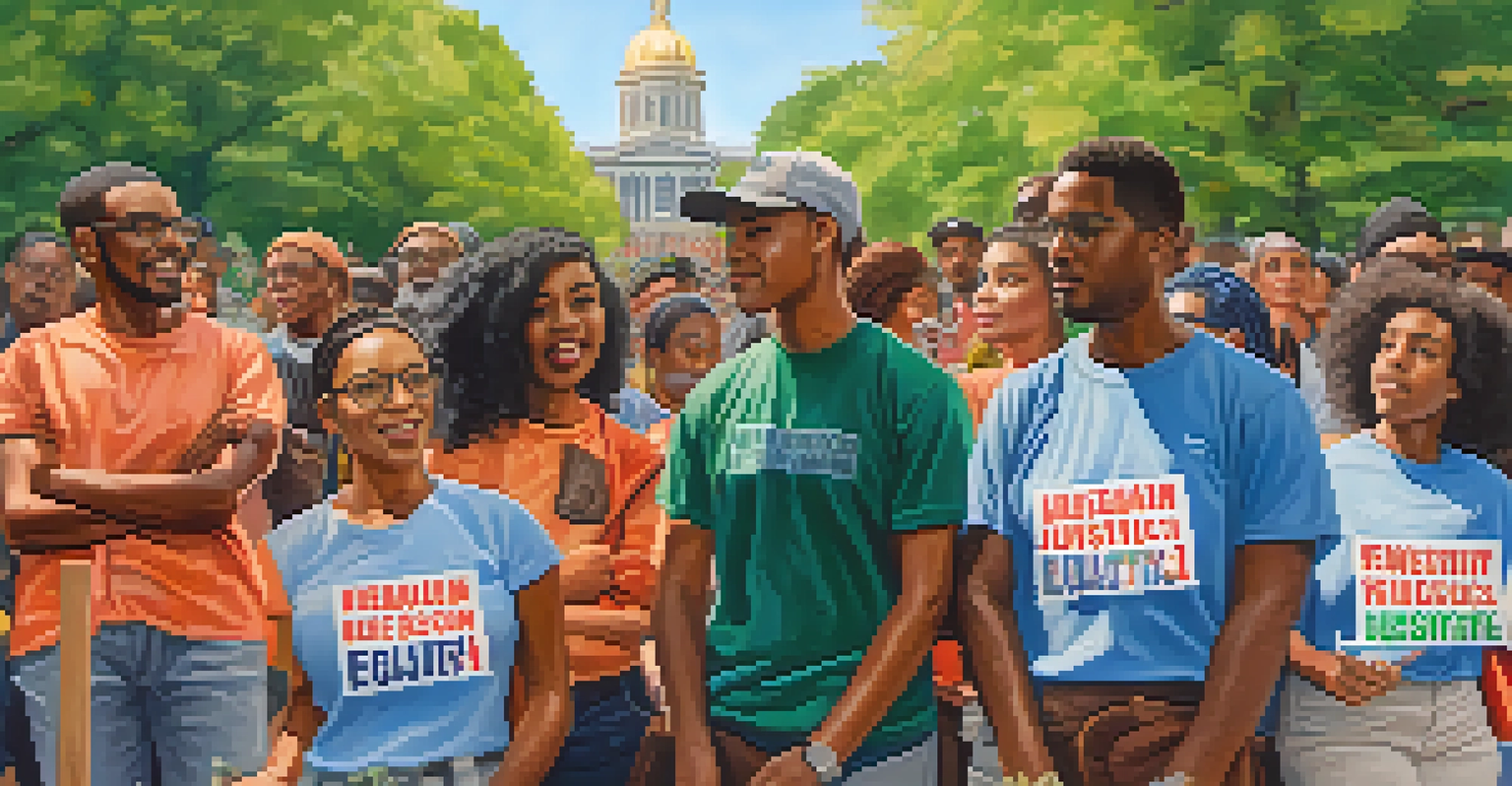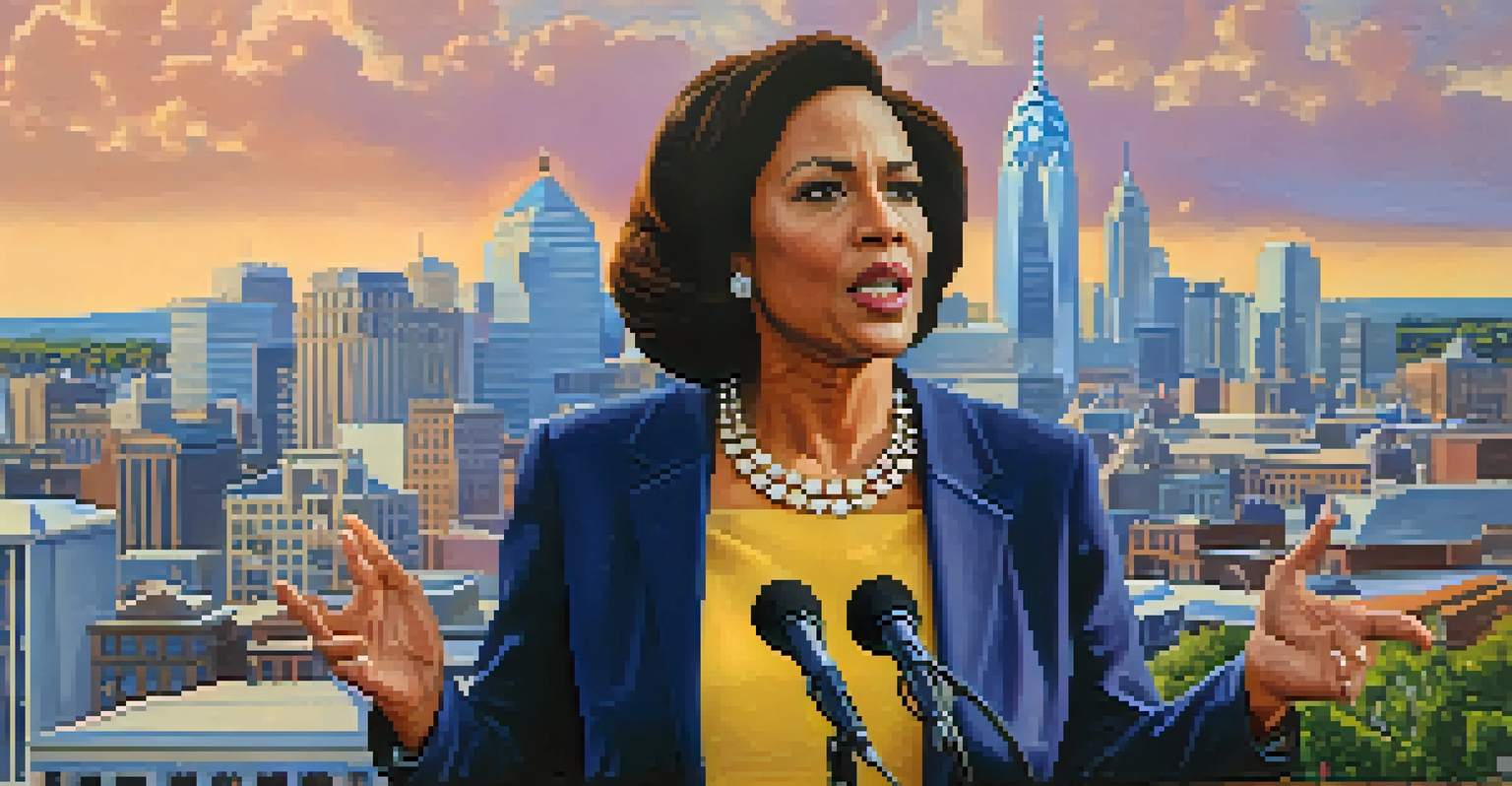The Influence of Philadelphia's Political Leaders Through History

The Founding Fathers and Philadelphia's Political Beginnings
Philadelphia is often referred to as the birthplace of American democracy, and much of that can be attributed to its early political leaders. Figures like Benjamin Franklin and George Washington played vital roles in establishing the foundations of governance during the nation's formative years. Their vision for a democratic society was not just about governance but also about fostering community and civic engagement.
The only thing necessary for the triumph of evil is for good men to do nothing.
Franklin, in particular, was a champion of civic responsibility and public service. He founded institutions like the first public library and the university that would eventually become the University of Pennsylvania. This focus on education and public welfare laid the groundwork for future leaders and policies that aimed to improve the lives of Philadelphia's citizens.
As Philadelphia hosted the Continental Congress and later the Constitutional Convention, the city became a melting pot of ideas and leadership. The discussions and decisions made here were pivotal in shaping the United States, making it clear that Philadelphia's leaders were instrumental in the very fabric of American politics.
The Role of Mayors in Shaping Philadelphia
Mayors have always played a significant role in Philadelphia's political landscape, influencing everything from city policies to community development. Leaders like Frank Rizzo, who served as mayor from 1972 to 1980, left an indelible mark on the city, often sparking both admiration and controversy. His strong, sometimes authoritarian style ignited discussions about law enforcement and civil rights that resonate even today.

In contrast, mayors like Wilson Goode, the first African American mayor of Philadelphia, brought a different perspective, focusing on inclusivity and social equity. Goode's tenure faced challenges, notably the MOVE bombing in 1985, but also highlighted the complexities of urban governance in a diverse city. His leadership was a pivotal moment that reflected the struggles and aspirations of many Philadelphians.
Philadelphia: Birthplace of Democracy
The city's early political leaders, like Franklin and Washington, laid the foundation for American democracy through civic engagement and governance.
Today, mayors continue to address pressing issues like education, housing, and public safety, demonstrating that their influence remains vital. Their ability to connect with citizens and address their concerns shapes the political landscape and the future of Philadelphia.
Civil Rights Leaders and Their Impact
Philadelphia has been home to numerous civil rights leaders who have fought for justice and equality. Figures such as Cecil B. Moore and Angela Davis emerged during the civil rights movement, advocating for the rights of African Americans and marginalized communities. Their activism not only brought national attention to Philadelphia but also inspired a generation of leaders.
Injustice anywhere is a threat to justice everywhere.
Moore, in particular, was instrumental in organizing protests and pushing for desegregation in the city. His efforts led to significant changes in policies and attitudes towards race relations, highlighting the power of grassroots movements. The legacy of these leaders continues to influence contemporary discussions around social justice and equality.
Moreover, the impact of Philadelphia's civil rights leaders extends beyond the city. Their stories of resilience and determination serve as a blueprint for activists nationwide, reminding us that local efforts can lead to significant change on a larger scale.
Political Movements and Grassroots Activism
Throughout its history, Philadelphia has been a hotbed for political movements and grassroots activism. From labor rights to environmentalism, citizens have rallied together to advocate for change, often spurred by local leaders who understood the power of collective action. This spirit of activism is a testament to the city's rich history of civic engagement.
The labor movement in Philadelphia, particularly during the late 19th and early 20th centuries, showcased the city's commitment to workers' rights. Leaders like John L. Lewis emerged from this environment, pushing for better working conditions and fair wages. Their advocacy not only transformed local industries but also influenced national labor policies.
Mayoral Influence on City Policies
Mayors in Philadelphia, from Rizzo to Goode, have significantly shaped city policies and community dynamics through their unique leadership styles.
In more recent years, movements such as Black Lives Matter and climate justice campaigns have gained traction in Philadelphia. Local leaders have harnessed social media and community organizing to amplify their messages, proving that the city’s tradition of activism is very much alive and continues to shape its political landscape.
The Influence of Political Parties in Philadelphia
Political parties have played a crucial role in shaping the governance of Philadelphia, with both the Democratic and Republican parties leaving their mark. The city's historical alignment with the Democratic Party has influenced policies and elections for decades, affecting everything from social services to economic development. This alignment often reflects the city's diverse electorate and their progressive values.
Throughout the 20th century, Philadelphia's Democratic leaders worked on initiatives to address urban poverty and improve education. The influence of figures like Mayor Ed Rendell helped to modernize the city’s infrastructure, making it more attractive for businesses and residents alike. His tenure showcased how party leadership could translate into tangible benefits for the community.
However, the presence of Republican leaders has also been significant, especially in challenging times. Their perspectives often bring alternative solutions to the table, encouraging dialogue and debate. This dynamic interplay between parties continues to shape Philadelphia's political scene, fostering a culture of engagement and participation.
Women in Philadelphia Politics: Breaking Barriers
Women have played an increasingly vital role in Philadelphia's political landscape, breaking barriers and paving the way for future generations. Leaders like former Congresswoman Chaka Fattah and Mayor Jim Kenney's Chief of Staff, Dana H. B. Wiggins, exemplify how women are stepping into leadership roles and influencing policy. Their contributions highlight the importance of diverse perspectives in governance.
The rise of women in politics has also brought attention to issues that disproportionately affect women, such as healthcare, education, and equal pay. Female leaders often advocate for policies that promote gender equality, showcasing how representation can lead to a more equitable society. Their voices contribute to a broader understanding of community needs.
Activism Drives Political Change
Grassroots movements in Philadelphia, from labor rights to contemporary social justice campaigns, demonstrate the city's rich tradition of civic activism.
Moreover, organizations dedicated to empowering women in politics, such as the Pennsylvania Women's Campaign Fund, are fostering future leaders. By providing resources and support, these initiatives are crucial for ensuring that women's voices are heard and valued in Philadelphia's political dialogue.
The Future of Philadelphia's Political Leadership
As Philadelphia continues to evolve, so too does its political leadership. The rise of new leaders from diverse backgrounds reflects the city’s changing demographics and the need for representation. Young activists and politicians are increasingly stepping forward, bringing fresh ideas and approaches to long-standing issues.
With challenges such as climate change, economic inequality, and public health, the future of Philadelphia’s political landscape will depend on leaders who can unite communities and foster collaborative solutions. This new generation is often driven by a commitment to social justice, equity, and sustainability, aiming to create a city that works for everyone.

Ultimately, the influence of Philadelphia's political leaders will continue to be felt in the coming years. Their ability to adapt to changing circumstances and engage with constituents will shape the city's future, ensuring that Philadelphia remains a vibrant center of democracy and civic life.